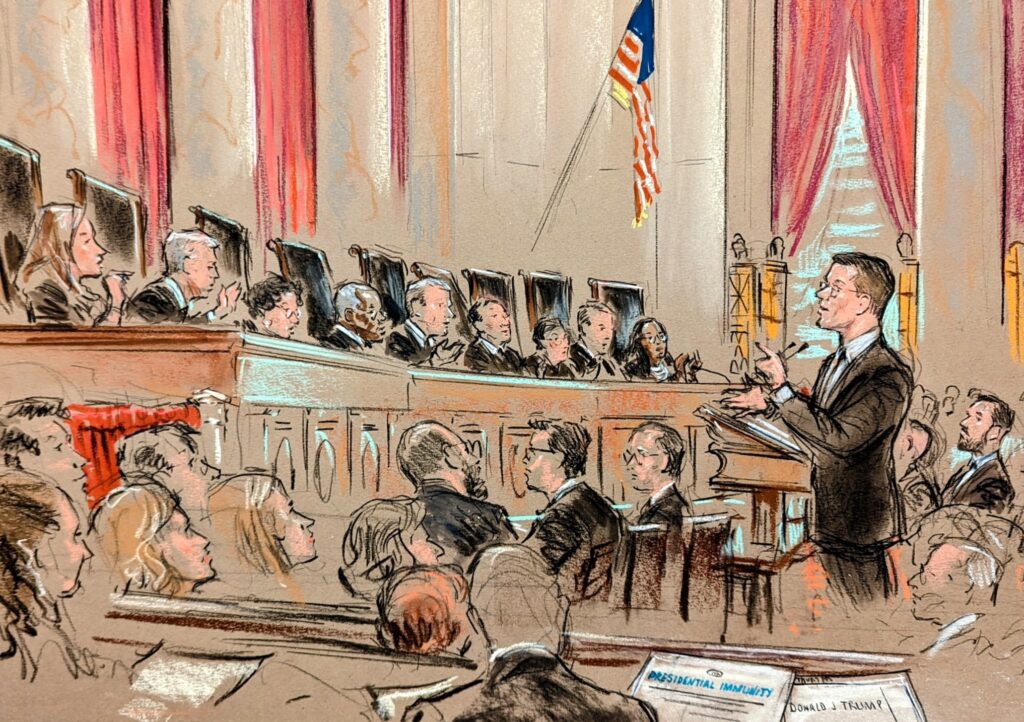In a landmark decision that could significantly impact the timeline of former President Donald Trump’s federal election subversion trial, the United States Supreme Court ruled on Monday that Trump may claim immunity from criminal prosecution for some of his actions during the final days of his presidency. This ruling rejects a previous decision by a federal appeals court that found Trump had no immunity for alleged crimes committed while in office to overturn the 2020 election results.

Chief Justice John Roberts, writing for the majority, emphasized that presidents do need immunity for their official acts. “We conclude that under our constitutional structure of separated powers, the nature of presidential power requires that a former president have some immunity from criminal prosecution for official acts during his tenure in office,” Roberts stated. However, he clarified that this immunity is not absolute: “The President enjoys no immunity for his unofficial acts, and not everything the President does is official. The President is not above the law.”
The Court’s decision effectively sends the case back to a lower court in Washington, instructing it to determine which of Trump’s alleged actions qualify as official or unofficial. This process will likely involve additional briefing and could significantly delay the trial on federal election subversion charges pending against the former president.

The ruling has sparked intense debate and criticism. Justice Sonia Sotomayor, in a scathing dissent, warned of potential dire consequences: “Let the President violate the law, let him exploit the trappings of his office for personal gain, let him use his official power for evil ends. Because if he knew that he may one day face liability for breaking the law, he might not be as bold and fearless as we would like him to be. That is the majority’s message today.”
Presidential historian Tim Naftali expressed concern that the decision would make it “much harder for the American people to protect themselves from a corrupt president.” He noted that the fact that a district court must now decide which elements of Trump’s presidency had immunity was “chilling.”
The Biden campaign quickly responded to the ruling, stating that it “doesn’t change the facts” regarding Trump’s actions following the 2020 election. A senior campaign adviser reiterated allegations that Trump “snapped” after losing the election and “encouraged a mob to overthrow the results of a free and fair election.”
Legal experts, including CNN chief legal correspondent Paula Reid, suggest that this decision could push the case past the November 2024 election. If Trump were to be re-elected, he could potentially make this case and the classified documents case “go away.”
As the legal and political ramifications of this ruling continue to unfold, it remains a pivotal moment in American jurisprudence, potentially reshaping the boundaries of presidential power and accountability. The decision underscores the complex interplay between executive authority and the rule of law, setting the stage for further legal battles as the 2024 presidential election approaches.



